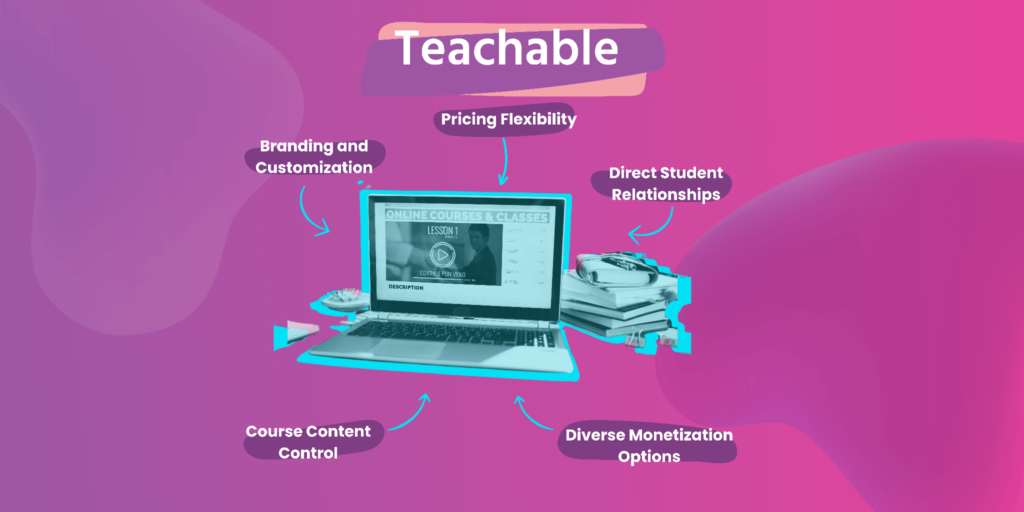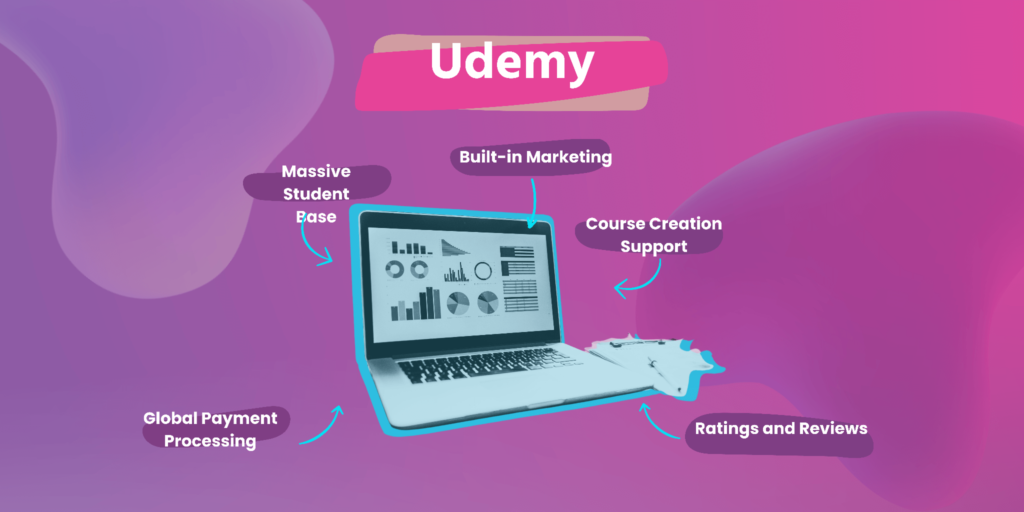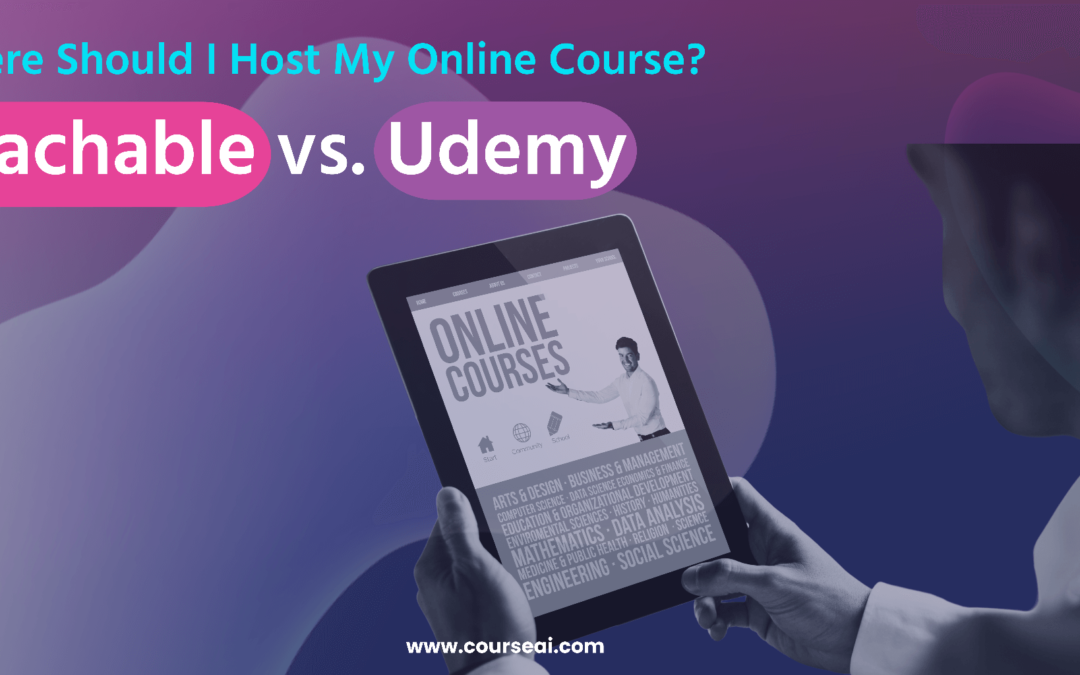If you’re starting an online course business, you’ve probably wondered about hosting your course in Teachable or Udemy. When you’re new in the industry, it’s easy to get lost in the myriad of options to choose from. In fact, you can even create your own website or online platform through which your students can access your online course. Teachable and Udemy, however, are two of the largest and most popular hosting platforms in the business. So, in this blog, we’ll talk about the main differences between the two and what might work best for you!
Teachable

Teachable is an online course platform that allows educators, entrepreneurs, and basically anyone to create and sell their courses independently. It offers a host of features that set it apart from the competition:
1: Building Courses:
Teachable allows you to maintain full control over your branding, website design, and domain. This level of customization ensures that your course platform aligns seamlessly with your brand identity.
2: Pricing and Monetization:
With Teachable, there are no limits as to how you price your course. There are various ways to monetize, such as through upsells, bundles, order bumps, and affiliate marketing.
3: Direct Student Relationships:
Teachable helps you have direct relationships with your students. You have access to their contact information and can communicate with them independently. You also have access to tools such as live video streams and drip content to help you engage with your students better.
4: Other features:
Teachable offers both community and live support to help with your questions or concerns. You can also get an onboarding advisor and customer success manager if you are a Pro user.
Udemy

Udemy, on the other hand, is one of the largest online learning marketplaces in the world. It offers a different approach to online course hosting:
1: Building Courses:
Udemy’s course builder is a bit more restrictive. You have to follow a set of guidelines when building your course. You should have clear learning objectives, videos should only be less than 2 hours, and every course added needs to be approved before you can publish it.
2: Pricing and Monetization:
Udemy has fixed pricing tiers that you can choose from when pricing your online course. It doesn’t offer the same monetization features as Teachable, but they do offer referral links, coupons, and affiliate marketing to help you monetize the course.
3: Direct Student Relationships:
Udemy allows you to communicate with your students through announcements and via direct messaging. Announcements are usually limited to four per month and can only include talk about one of your courses. Direct messaging allows you to communicate with them one-on-one if they have any questions or concerns about your course.
4: Other features:
Udemy also offers community support for its creators or instructors. In it, you’ll find resources and articles that can help you, including FAQs. However, they do not offer live support.
Teachable vs. Udemy: Which is Right for You?
Ultimately, the choice between Teachable and Udemy depends on your specific goals and preferences. Here’s a breakdown that can hopefully help you choose the best fit for you:
| Aspect | Teachable | Udemy |
| Control and Branding | Full control over branding and customization of your course platform. | Limited branding options, courses hosted on Udemy’s platform. |
| Pricing | Set your own course prices and retain most of the revenue. Transaction fees may apply on lower-tier plans. | Udemy determines course pricing, revenue share varies based on promotion method. |
| Ownership of Content | You retain complete ownership of your course content and can use it as you wish. | Udemy claims some rights to your content, and you can’t use it outside Udemy. |
| Student Relationships | Direct access to student contact information for independent communication. | Udemy manages student relationships and communication on the platform. |
| Monetization Options | Offers flexibility in pricing models, including one-time payments, subscriptions, and bundles. | Predominantly uses a fixed pricing model determined by Udemy. |
| Marketing and Promotion | Requires creators to handle their marketing and promotion efforts. | Udemy promotes courses to its extensive user base. |
| Course Creation Support | Provides tools and resources for course creation, but you have more autonomy. | Offers guidelines, support, and assistance for new course creators. |
| Payment Processing | Payment processing is your responsibility, and you choose your preferred payment gateway. | Udemy manages payment processing and transactions for you. |
| Reviews and Ratings | Provides a review system, but creators have control over moderation and responses. | Includes a rating and review system that can boost course credibility. |
| Existing Audience | Ideal for creators with an existing audience or those looking to build their brand independently. | Beneficial for those who want to tap into Udemy’s large and diverse user base. |
| Autonomy | Offers greater autonomy and control over course content and policies. | Less control over pricing, content visibility, and promotional methods. |
Build Your Online Course With CourseAI
Whichever way you lean on uploading and hosting your online course, CourseAI can help you build online courses that work for both platforms.
CourseAI automates the whole process so you can focus more on the customer journey and sales. With our new and exciting features, you can easily add videos, quizzes, and a whole lot of engagement tools to make your online course stand out in either platform!

